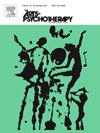音乐治疗师临床音乐选择的社会文化趋势
IF 1.5
3区 心理学
Q3 PSYCHOLOGY, CLINICAL
引用次数: 0
摘要
研究表明,社会文化认同会影响大众的音乐偏好和价值观。然而,缺乏文献调查是否在音乐治疗师的临床音乐决策中看到类似的影响。作为医疗保健专业人员必须不伤害客户,音乐治疗师应该调查偏见是否影响音乐治疗过程中的临床决策。研究人员以N = 288名音乐治疗专家为对象进行了问卷调查,选出了临床音乐治疗中最喜欢的5首歌曲。音乐治疗师的人口统计信息与他们在调查中列出的音乐艺术家的人口统计信息进行了比较,以确定两者之间是否存在趋势。音乐治疗师的性别、种族/民族、LGBTQIA+ 身份、宗教、残疾/能力身份、教育水平和参与者的年龄显示了音乐治疗师在选择音乐时的代表性差异。未来的研究应该更深入地探索每个组成部分,以确定音乐治疗师的社会文化认同与他们在音乐治疗过程中自我选择的音乐之间的统计关系。本文章由计算机程序翻译,如有差异,请以英文原文为准。
Sociocultural trends in music therapists’ clinical music choices
Research has shown that sociocultural identities impact musical preferences and values in the general population. However, there is a dearth of literature investigating if similar impacts are seen in music therapists’ clinical music decisions. As healthcare professionals bound to do no harm to clients, music therapists should investigate if bias impacts clinical decision-making in music therapy sessions. The researcher conducted a survey with N = 288 music therapists to identify their top five self-chosen songs for use in clinical music therapy sessions. The music therapists’ demographic information was compared to the demographic information of the musical artists they listed in the survey to determine if there are trends between the two. Disparities of representation in chosen musical selections showed potential relationships based on music therapists’ gender, race/ethnicity, LGBTQIA+ identity, religion, dis/ability identity, level of education, and the age of the participants. Future research should explore each component more in-depth to determine the statistical relationship between music therapists’ sociocultural identities and the music they self-select for use in music therapy sessions.
求助全文
通过发布文献求助,成功后即可免费获取论文全文。
去求助
来源期刊

Arts in Psychotherapy
Multiple-
CiteScore
3.20
自引率
11.10%
发文量
66
期刊介绍:
The Arts in Psychotherapy is a dynamic, contemporary journal publishing evidence-based research, expert opinion, theoretical positions, and case material on a wide range of topics intersecting the fields of mental health and creative arts therapies. It is an international peer-reviewed journal publishing 5 issues annually. Papers are welcomed from researchers and practitioners in the fields of art, dance/movement, drama, music, and poetry psychotherapy, as well as expressive and creative arts therapy, neuroscience, psychiatry, education, allied health, and psychology that aim to engage high level theoretical concepts with the rigor of professional practice. The journal welcomes contributions that present new and emergent knowledge about the role of the arts in healthcare, and engage a critical discourse relevant to an international readership that can inform the development of new services and the refinement of existing policies and practices. There is no restriction on research methods and review papers are welcome. From time to time the journal publishes special issues on topics warranting a distinctive focus relevant to the stated goals and scope of the publication.
 求助内容:
求助内容: 应助结果提醒方式:
应助结果提醒方式:


